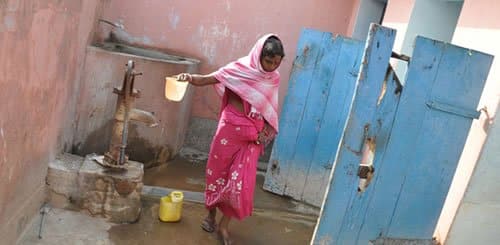The humble toilet/loo/jak/bog or whatever term you use, the “butt” of so many jokes is being celebrated today on World Toilet Day, 19th November.
Why celebrate the toilet?
The toilet sometimes referred to within the wider interpretation “Sanitation” is widely recognised as one of the greatest inventions since the invention of the wheel or even sliced bread for that matter. In fact, in 2007 readers of the British Medical Journal voted that “Sanitation” was the most important medical advance since the journal’s foundation in 1840, rating sanitation higher than antibiotics and immunisations.
It should be easy to understand why the toilet is rated so highly by those working in public health. In Ireland and the UK child mortality from infectious diseases such as typhoid and cholera dropped massively following the “sanitary revolution” as it might be termed. Sanitation, alongside improved water supply, housing and nutritional levels are widely regarded as being responsible for this massive decline and some figures indicate mortality levels among children fell by as much as 29% in the 10 years from 1898 to 1908. As we in Ireland commemorate the Lockout of 1913 we are reminded of the dreadful overcrowded and unhygienic living conditions people endured at this time.
Waiting for the ‘sanitary revolution’
In many developing countries the “sanitary revolution” hasn’t arrived yet and diseases such as diarrhoea, closely associated with poor standards of hygiene remain the biggest killer of children. Diarrhoea kills 4,000 children every day around the world. In Africa it is the leading killer of children under 5 years old, causing more deaths than AIDS, Malaria and Measles combined.
Human excreta or to be blunt shit is deadly. Up to 50 diseases are transmitted through human excreta and every gram contains up to 10 million viruses, 1 million bacteria, 1,000 parasite cysts and 100 parasite eggs. Despite the known importance of sanitation in terms of the risk to human health still 2.5 billion people worldwide do not have access to a decent toilet and just over 1 billion of those defecate in the open.
The international framework
In 2000 the world set the Millennium Development Goals, a series of 8 goals and numerous sub-targets to be achieved by 2015 as an indicator of progress towards the elimination of poverty. Sanitation alongside water supply was included under MDG 7, to reduce by half the proportion of people without access to basic sanitation. In 2013 only 64% of the global population has access to a decent toilet and the MDG for Sanitation is likely to be missed by over a half a billion people. Interestingly the MDG for water supply was met in 2010 further indicating the lack of progress or attention on sanitation.
Sanitation is a low priority in many development programmes and yet sanitation plays an extremely important role in the achievement of development results including those related to education, equality, health, environment, poverty reduction and it also delivers value for money. Addressing global hunger is central to Ireland’s new policy for international development and sanitation alongside hygiene promotion and water supply can play an important part in meeting those objectives.
A long way to go
The Scots and the Greeks are credited in some circles with the invention of the toilet as far back as 3,000 B.C. Unlike the more recent invention of mobile phone global coverage, sanitation has some way to go, with more people in India have access mobile phones than access to toilets. After nearly 5,000 years still 2.5 billion people or 36% of the global population still do not have access to a decent and hygienic toilet. In the words of another journal, The Lancet, sanitation has languished at the bottom of the international development agenda for far too long. It’s time to give a shit! Do you?
Get involved
If you are interested in this topic you are invited to become a member of the Irish Forum for Global Health. There is also a petition you can sign asking the international development community to pay more attention to sanitation issues.
Author: Student Outreach Group of the Irish Forum for Global Health
